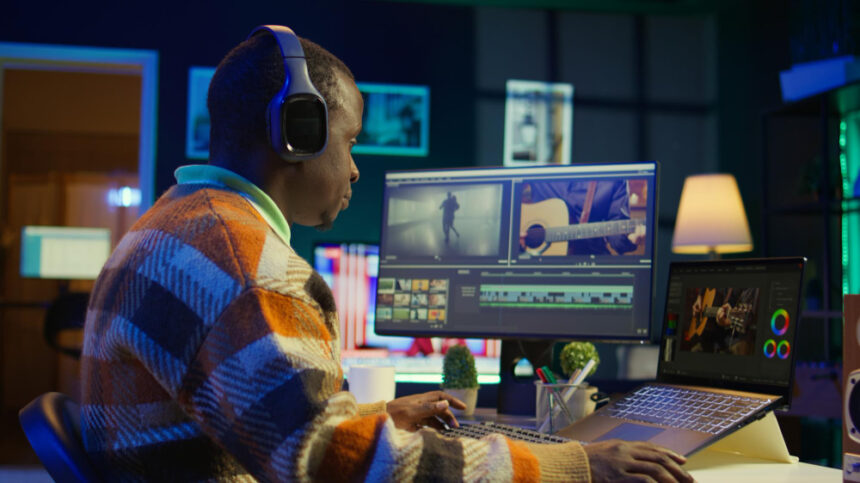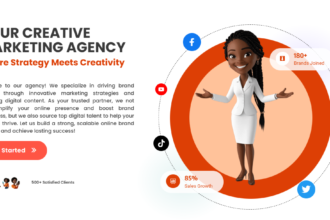How to Become a Video Editor
Are you interested in turning your passion for videos into a career? Do you want to learn how to become a video editor? If yes, you are in the right place. This guide will walk you through the simple steps you need to follow to start your journey as a professional video editor. Whether you are a beginner or want to improve your skills, these tips will help you build a strong foundation in video editing.
What Does a Video Editor Do?
Before diving into how to become a video editor, it’s helpful to understand what a video editor does. Video editors are responsible for assembling recorded footage into a finished project. This can include films, TV shows, YouTube videos, advertisements, social media content, and more. They cut, trim, add effects, sound, and sometimes color grade videos to make them engaging and professional.
Why Be a Video Editor?
There are many reasons why people choose a career in video editing. If you enjoy working with videos, expressing creativity, and telling stories visually, this field is perfect. It also offers flexible working hours, remote work options, and the chance to work with different types of content and clients.
How to Start Your Journey as a Video Editor
To become a successful video editor, you need to follow certain steps. Here is a simple plan to help you start:
1. Learn the Basics of Video Editing
Start with understanding what video editing is. You can find free tutorials online on platforms like YouTube, or enroll in beginner courses on websites like Udemy, Skillshare, or Coursera. Focus on learning the fundamental concepts such as cutting, trimming, adding transitions, and basic effects.
2. Choose the Right Video Editing Software
There are many video editing programs available, both free and paid. Some popular options include:
- Adobe Premiere Pro
- Final Cut Pro
- DaVinci Resolve
- HitFilm Express
- iMovie (for Mac users)
Beginners often start with free software like DaVinci Resolve or iMovie to learn the basics. As you gain experience, you can upgrade to professional tools like Adobe Premiere Pro. Choose a software that fits your budget and learning curve.
3. Practice Regularly
Practice is key to becoming a good video editor. Start by editing simple clips from your phone or camera. Try creating short videos, such as a travel vlog or a birthday highlight. Practice applying different edits like transitions, text overlays, color correction, and sound editing. The more you practice, the more confident you will become.
4. Build Your Skills
Apart from the main editing skills, learn about:
- Color grading and correction
- Sound editing
- Adding special effects
- Working with motion graphics
- Understanding storytelling techniques
Many online courses and tutorials cover these advanced topics. Improving these skills will make your edits look more professional.
5. Create a Portfolio
As you develop your skills, start building a portfolio of your best work. You can upload your videos on platforms like YouTube, Vimeo, or create a personal website. Your portfolio shows potential clients or employers what you can do and highlights your style and versatility.
6. Get Feedback and Improve
Show your work to friends, family, or online communities dedicated to video editing. Listen to their feedback and use it to improve. Keep learning and experimenting with new techniques and styles.
7. Look for Freelance Opportunities or Internships
Once you have a few projects to showcase, start looking for freelance gigs on platforms like Upwork, Fiverr, or Freelancer. You can also reach out to local businesses, content creators, or non-profits for internships or small projects.
8. Keep Learning and Stay Updated
Video editing technology is always evolving. To stay competitive, keep learning new software features, editing styles, and industry trends. Follow popular video editors on social media, join relevant forums, and participate in online contests or challenges.
Tips for Success as a Video Editor
- Be patient; mastering editing skills takes time.
- Focus on storytelling and creating engaging content.
- Manage your time efficiently to meet deadlines.
- Invest in good hardware, such as a decent computer with enough RAM and storage.
- Maintain a positive attitude and network with other editors and content creators.
FAQ – How to Become a Video Editor
Do I need a degree to become a video editor?
Not necessarily. Many successful video editors are self-taught. However, a degree in film production, media studies, or related fields can enhance your knowledge and employability.
How long does it take to become a professional video editor?
It varies. With consistent practice and learning, you can become proficient in 6 months to a year. Building a full portfolio and landing steady work can take longer.
What skills are important for a video editor?
Key skills include attention to detail, creativity, technical skills in editing software, patience, and good communication with clients.
Bonus: Related Blogs You Should Read on Videos
If you are interested in learning more about videos, check out the blogs below.
- Video Content or Graphics — Which One Drives More Traffic?
- Short-Form Video Dominance: Why Your Brand Can’t Afford to Ignore It
- Visual Storytelling: How to Engage Your Audience and Keep Them Hooked
- How to Monetize YouTube Channel: YouTube Monetization Guide For Success
- 3 Irresistible Keys for Nigerian Video Marketing!
Becoming a video editor is a rewarding journey that combines creativity with technical skills. Start by learning the basics, practicing regularly, and building your portfolio. Stay committed to improving your craft and keep up with industry trends. With patience and dedication, you can turn your passion for videos into a successful career.
If you stay focused and follow these steps, you’ll be well on your way to becoming a professional video editor. Good luck!
Image source: Freepik.com






